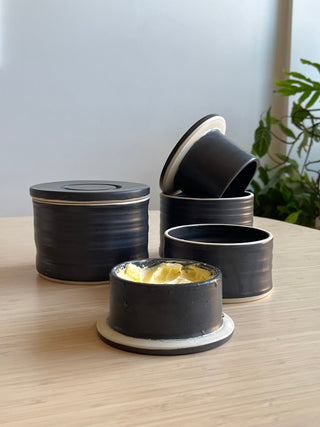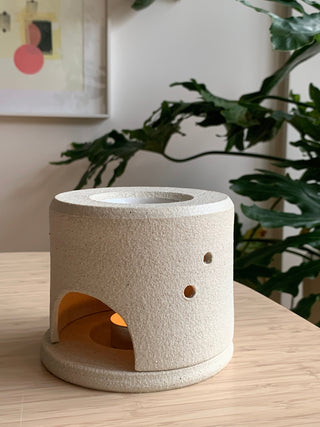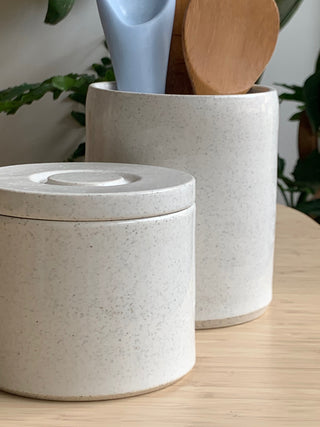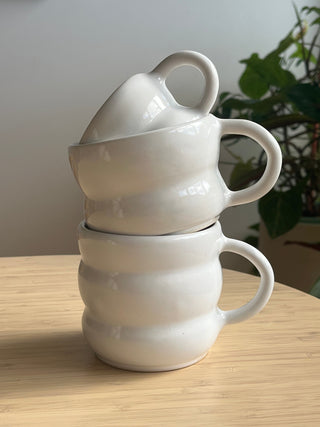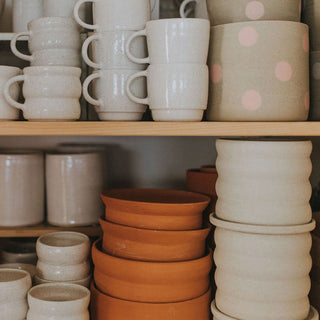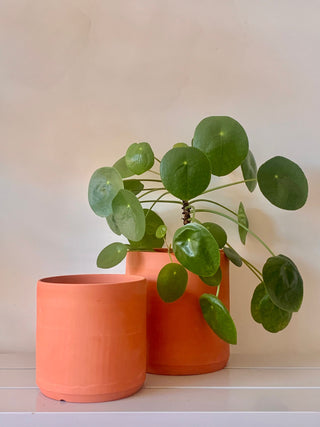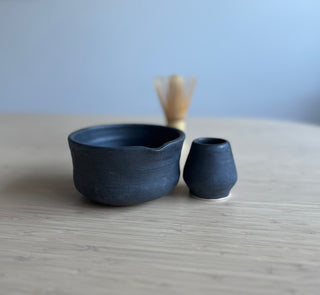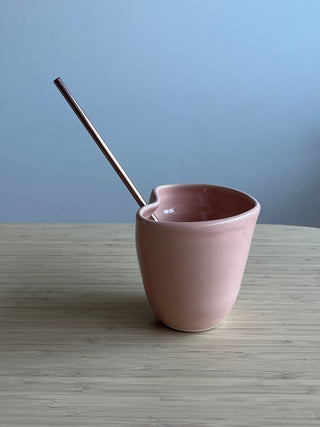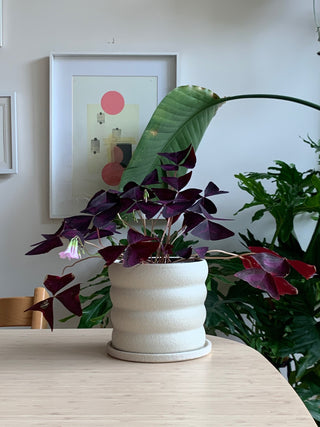If you’ve been practicing wheel throwing for any length of time, you’ve probably had this experience: You learn a new technique—maybe it’s pulling taller walls, attaching handles more elegantly, or mastering the elusive even rim. You watch your instructor demonstrate, it looks easy enough, and you think, Okay, I’ve got this!
Then you try it yourself, and… it doesn’t work. Your cylinder collapses, your handle pulls off, or that nice, even rim turns into a wobbly mess. Suddenly, it feels like you’ve gone backwards, like you were improving before, but now you’re just struggling. I see this happen with so many students, and I always tell them: This is part of the process.
You’re Not Starting from Zero. Whenever you learn a new skill in wheel throwing, you’re not actually starting from scratch. You bring with you everything you’ve already learned—how to center, how to control your speed, how to listen to the clay. Even if this new technique isn’t clicking right away, your hands and your brain are making connections behind the scenes.
This is why, even when a new skill feels impossible at first, you’ll often find that after a few sessions, things suddenly start to work. It’s not magic—it’s the result of practice, patience, and the foundation you’ve already built.
The Messy Middle is Where Growth Happens. When you first start learning a new technique, it’s easy to feel disheartened if it doesn’t come together right away. But the messy, frustrating stage is where the real learning happens. This is the part where your hands start figuring things out. It’s where mistakes teach you what not to do. And it’s where persistence starts turning struggle into skill.
So if you’re in that place—if your new technique isn’t working yet, if your pots aren’t looking how you want them to—keep going. You will get there.
A Reminder to Be Kind to Yourself. I often remind my students: If you were watching a friend struggle with a new skill, you wouldn’t tell them, Wow, you’re terrible at this. You should probably quit. But so many of us say that to ourselves! Instead, try talking to yourself the way you would encourage a friend:
• “This is new. It makes sense that it’s hard.”
• “I’m learning, and I’m improving, even if I don’t see it yet.”
• “Every time I practice, I’m getting better.”
Wheel throwing is a journey, and every new skill you learn adds to your abilities as a potter. Keep practicing, keep experimenting, and trust that with time, the things that feel impossible now will soon feel second nature.
And most importantly—enjoy the process! The wobbly pots, the near-misses, the messy, muddy hands—it’s all part of what makes ceramics such a rewarding craft. And we've ALL been there.
